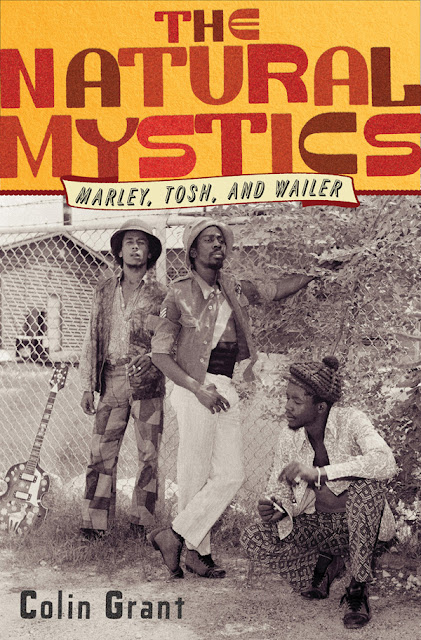'Costuleta, in the music videos that made him famous, begins by gyrating on crutches (he lost his leg as a child) while rapping, surrounded by beautiful dancing women and palm trees. Suddenly, unexpectedly, he explodes into improbable acrobatics: dancing, jumping, and flipping. To view this for the first time is surreal. But for the most iconic figure in the exciting Angolan kuduro scene, defying people’s expectation has been way of life.
Costuleta’s 2005 hit “Tchiriri,” the infectious anthem which exemplifies the genre’s mix of booty-shaking African house, hip-hop, and soca, pushed the local kuduro style (and him) to the world stage. Born into a poor family in Luanda, Angola, he now regularly plays to thousands in the French-Caribbean, Brazil, Africa and Europe.
Recently signed to Sony France, Costuleta agreed to an interview in a Paris hotel. Priest-like in a tight, white hooded shirt, loose white pants and a sandal, he made his way across the hotel lobby on crutches, settled into the sofa chair, and fielded questions from behind dark, square sunglasses for this, his first interview to an English-speaking audience. The man’s energy and charisma were palpable, and his easy, infectious smile simultaneously reinforced his humor and softened the edges of what turned out to be a very candid interview."
"I am from Luanda, the capital of Angola. My mother was a housewife, a regular woman. My family was far from rich. When I was 4 years old, I was in a car accident, and lost my leg. My father died shortly thereafter. When I was 12, the wife of the President of Angola gave a present to the disabled children of the country, and sent many of them overseas for treatment and prosthetic fitting. I went to Germany. I was there for a while.
Sometimes when I had a chance, I tried to go out and break dance and rap. But it was very racist there. It was hard for me to move around. Eventually I moved back to Angola. I started dancing with Tony Amadou, one of the first kuduro artists. By that time I had been adopted away from my mother’s home by a white Italian family in Luanda, who thought I was cute as a handicapped dancer."
SEE FULL INTERVIEW ON MTVIGGY.COM.
Costuleta & Writer Rishi Bonneville.
Thursday, October 13, 2011
Area of Brownness: An Indian writer encounters Indian-ness in Guyana
"A young English-speaking Indian writer travels halfway across the world to write about another group of English-speaking Indians. In 1964, it was Trinidadian V.S. Naipaul’s passage to India, an experience he documented in Area of Darkness. Almost a half-century later, The Sly Company of People Who Care –a new novel by Rahul Bhattacharya–inverts Naipaul’s journey, following a cricket writer from Mumbai to Guyana, where 40% of the population are of Indian extraction, people left behind by the brutal British indenture system.
The first third of the book is the strongest; a series of vignettes, in which the narrator describes sights and sounds—familiar and unfamiliar, safe and unsafe—during his travels in the capitol Georgetown and a sojourn into the rainforest. This tension is perhaps best embodied by the mystical Dr. Red, a “veveve very” spiritually rich elder of Amerindian ancestry whose mellow demeanor is perpendicular to his capacity for vengeance. “I lash him in all respects,” Dr. Red calmly states while recounting how he axed up a friend who raped an Amerindian girl."
SEE FULL REVIEW HERE.
Q+A with Soca Juggling King DJ Zack
 |
Labor Day Monday on Eastern Parkway draws Caribbean people from across all boroughs of New York City. But in the festive summer build-up prior to the pageantry on the road, folks from neighborhoods like Crown Heights, Canarsie, South Ozone Park and St. Albans gather nearer to their homes, often in affinity groups based around their island of origin. While each community has its celebrity DJs, specializing in mixing American hits with styles like zouk, soca, chutney, and merengue de calle, few NYC DJs cross through niches and successfully navigate the politics of each sub-scene. One person who does is Brooklyn-born Guyanese selector Zack Mangru aka DJ Zack. Raised in the dancehall scene of East Flatbush, he is now ubiquitous in the very insular Richmond Hill, Queens soca and chutney world. Before he flies down for Jabba Strikes Back during Miami Carnival in late September, he first must survive seven parties (including a Machel Montano show) in three boroughs during five days of Labor Day madness, starting tonight. Large Up caught with the man known as “The Juggling King” as he prepared his devastating playlist of dancehall, soca and chutney for this week."
SEE FULL INTERVIEW HERE.
Q+A with Chef Camille Becerra + Hot Pepper Sauce Recipe
"On a muggy Monday this past July, on a block a stones throw away from the anxieties of Wall Street, a mellow and eclectic group of people gathered in the lobby of the subdued Thompson Hotel. A bald black man in brown sandals and a white linen outfit with a plunging neckline, a thirty-something Asian female banker, and a group of shabby-chic middle-aged white guys were among the faces in the crowd. The draw for this disparate group was a pop-up dinner—part of a series called The Cookery—by Cubana-Nuyorican chef Camille Becerra, former Top Chef contestant and outspoken proponent of the farm-to-table model of good eating. The four-course meal, punctuated by remarkable items like olive-topped watermelon, gourmet cuchifritos and fresh striped bass–and enjoyed to an audio backdrop provided by Dark Angels –was a memorable excursion into creative eating by a master chef. LargeUp caught up with Camille Becerra shortly thereafter to discuss her roots and her unique food philosophy."
SEE FULL INTERVIEW HERE.
Finding Jamaica in Paris at Hustler Corner
"As a visitor from New York, it is disorienting to be in a major international city like Paris and not hear reggae. While New York oozes Caribbean-ness, Paris gets its accents from Africa. Away from the city of lights popular tourist destinations, in neighborhoods like Chateau Rouge, Barbes-Rochencourt, Simplon, Stalingrad—and further out in the infamous suburbs like Evry—brown folks from Senegal, Algeria, Mali, Morocco and other former French colonies live and work. And, when no work is available, simply come outside to talk. The music of choice, vibrating from mini-cars and storefronts might be Ivorian coupe decale, Congolese Soukous, or Algerian Rai. If you’re hungry, the local boulangeries offer long orange-crusted baguettes and bitter shots of espresso coffee, each for less than a euro. Turning onto a side street, you’ll find mostly small, narrow restaurants with hand-painted signs specializing in fare from Cote D’Ivoire, Mali and Martinique. Haitian spots are few, ongoing fallout from the epic war of liberation two centuries ago. Visiting Paris this past June, staying in Simplon, I was drawn in by the variety of tastes around me, each with its own historical raison d’etre. But after two weeks of raison d’etre, I was having a case of curry tabanca. I needed roti and reggae."
SEE FULL REVIEW HERE.
Effort to Exonerate Marcus Garvey Spreads Online
"" In London, 61 years ago today, Marcus Garvey, founder of the pioneering United Negro Improvement Association (UNIA), died. Garvey, a Jamaican, was alone, having been deported from the United States, where J. Edgar Hoover and the FBI were determined to stop his attempt to link Africa and African-Americans by sea via the Black Star Line. Recently, Geoffrey Philp, a Jamaican writer and blogger based in Florida, started a petition to clear Marcus Garvey of the mail fraud charges that caused his deportation and his downfall. Philp’s goal is to collect 10,000 electronic signatures, and deliver them to US President Barack Obama. Philp, whose writing appears in the Oxford Book of Caribbean Short Stories, says he started this petition out of “love and respect for Marcus Garvey” and after watching other similar initiatives fail."
SEE FULL STORY HERE.
Root of Roots: Colin Grant’s ‘The Natural Mystics’ (Book Review)
"In the imagination of many, the history of Jamaica begins with Bob Marley and the Wailers—musical priests who appear magically out of a foggy, forgotten Isle. With Chris Blackwell’s business acumen and guidance, the story goes, Marley’s native wisdom and lyrics spread like ganja smoke through the Caribbean and the world. The Natural Mystics, a well-written new book (due out next month) by Colin Grant, a BBC writer with Jamaican ancestry, challenges this narrative. Grant zooms in on the personal origins of Bob, Bunny Livingston and Peter Tosh, providing nuance and political, economic and psychological context to their development. He reroutes the rise of the Wailers and redistributes the weight of their success to their earlier struggles and interactions."
SEE THE FULL REVIEW HERE.
Subscribe to:
Comments (Atom)







